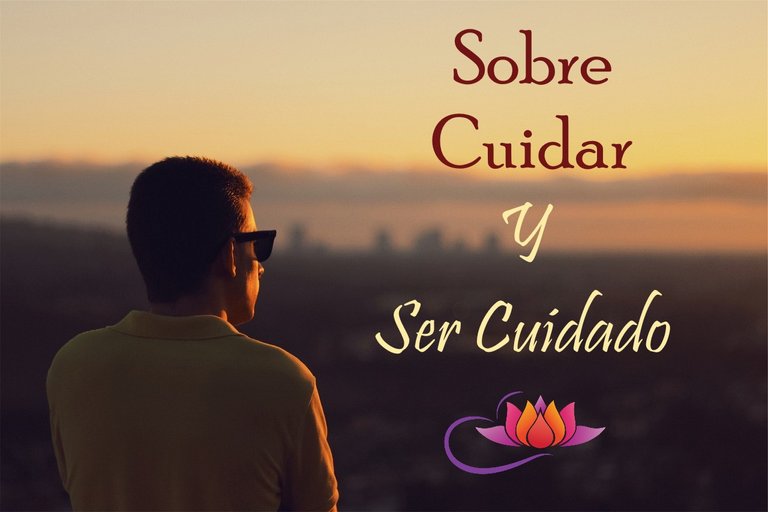

En nuestros países latinoamericanos puede no ser difícil sentirse como una carga, la familia arropa y tiene una cultura de hijos que al final mantienen a sus padres.
Esta es una situación que han expuesto algunas de las personas que han aportado en la Iniciativa La Revolución de la Longevidad III; y es de analizar, porque define a quien se siente carga y también define al cuidador, en cómo nos comportamos ante ellos.
Nos referimos a nuestros padres, abuelos, amigos, que por circunstancias quedan solos, al cuidado y dependencia de otros, como ocurre con la migración, la edad o la enfermedad.
¿Qué podemos hacer para aligerar la carga emocional de quien se siente abrumado ante el hecho de que es responsabilidad de otros?


Una inquietud de los usuarios creadores de @holos-lotus
Estoy sumamente agradecido por la cantidad de increíbles publicaciones que generan las iniciativas de nuestra comunidad.
Con respecto a la iniciativa La Revolución de la Longevidad, estoy impresionado con la cantidad de información, experiencias y lecciones de vida que los usuarios nos dejan en relación con el trato a los demás, porque, al fin y al cabo, esa es la finalidad de esta iniciativa, verificar cómo me estoy comportando con los otros.
Y respecto a esto, @zorili91 en su excelente, humana y confidencial publicación, me dejó una duda pendiente que me obliga a desarrollarla antes de hacer el resumen de la iniciativa de Séptimo Día de este mes.
Ella nos plantea la situación de cuando los hijos deciden, o tienen esa necesidad, de hacerse cargo de sus padres, generalmente por agradecimiento, o porque entienden que llega un momento en que necesitamos ser atendidos por otros.
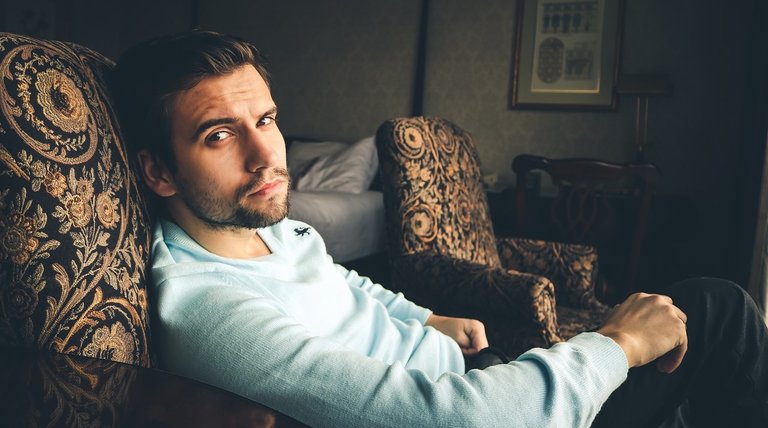
Aceptar la ayuda
En Latinoamérica, por diferentes razones, nos encontramos muchas veces bajo la responsabilidad de otros.
La migración, así como la misma edad, hacen que tengamos que formar parte de la responsabilidad de nuestros familiares, a veces amigos y hasta vecinos, y esto puede hacernos sentir desconectados y agobiados.
Debemos aprender, que tarde o temprano vamos a dar ayuda o a recibirla.
Que la familia tiene el peso emocional que representa responsabilizarse por los suyos en situaciones de vulnerabilidad y que son capaces de apoyar con una actitud de colaboración, pero también con empatía y comprensión.
De pronto, alguna situación no salió como esperabas y terminaste solo en el país, pero tienes familiares que aunque lejanos, pueden responsabilizarse por ti.
Esto implica que las redes de apoyo a nivel social, son tan importantes como las profesiones, que son parte de la existencia, por lo que debes comenzar a transformar tus creencias.
Y siempre hay otras maneras de aportar; y una carga no necesariamente está ligada en su concepto al área económica, pues, hay muchas formas de hacerse sentir, de colaborar, de ser partícipe en el bienestar de una familia o de la gente que se responsabiliza por nosotros.
Por eso, debemos aprender a darnos el valor que tenemos, aun siendo atendidos por otros.
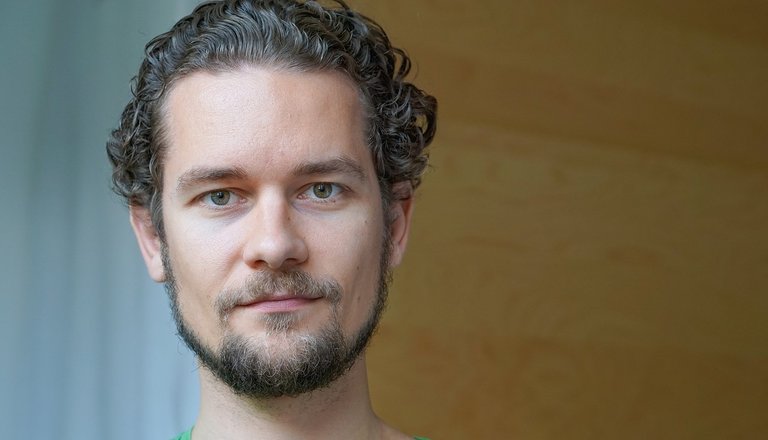
Más, el aporte del que cuida…
Por otro lado, los familiares que debemos responsabilizarnos por otros en situaciones de vulnerabilidad, debemos estar pendientes de las emociones generadas por saberse una carga, que son como un síndrome que estos pueden llegar a sentir.
Son una serie de reacciones emocionales en quien siente que es una carga para los demás.
Y esto con la finalidad de ser preventivos ante el estrés, la depresión, la angustia; para brindarles apoyo, y una nueva perspectiva de lo que significa ser ayudado.
Estamos en el deber y en la capacidad de detectar estas situaciones, de hablar como familia para que reciba la atención que debe recibir.
El familiar que estamos apoyando debe mantener el optimismo, cuidar su autoestima, recibir de nosotros emociones coherentes y genuinas que puedan ayudar a que se promuevan conductas de autocuidado para que siempre se mantengan activos.
Saber que un familiar se siente valorado y atendido debe ser una de las razones por las que estemos comunicándonos con él y haciéndole saber que es ley de vida.
Que muchas veces recibimos, tanto, como damos.
El deterioro físico y psíquico de un familiar que se siente impotente e improductivo, puede evitarse cuando detectamos actitudes de culpa y de incertidumbre.
Y para eso, indicamos las razones que existen para ser cuidado y apoyado, así como, transmitir la honestidad de nuestras emociones y subrayar que es una acción humana, parte importante de lo que es vivir en comunidad.

El agradecimiento y la razón humana
Que siempre nos mueva el agradecimiento hacia el entorno.
No porque un ser humano no nos haya dado en forma directa, no significa que no sea parte de la humanidad que nos rodea.
Por lo que es nuestra responsabilidad tender la mano, porque debemos ser agradecidos con la vida, por habernos dado la opción de disfrutar la existencia.
El agradecimiento es lo más importante que un ser humano debe tener para tender su mano, y saber que, en cualquier momento, va a necesitar de las manos de los demás.
La ayuda psicológica puede servir tanto para el que recibe la ayuda como para el que la da, porque hay que entender la verdadera dimensión del servicio, que es parte inherente a la condición humana.
Estoy agradecido, repito, con los que están creando aleccionadoras publicaciones a partir de La Revolución de la Longevidad III, generando temas para reflexionar cada vez más complejos.
Y aún estoy pensando en cómo hacer un resumen ante tantas palabras y lecciones valiosas.
Por ahora, le envío, con mucho cariño, un reconocimiento en puntos #Ecency a la amiga Zorili @zorili91

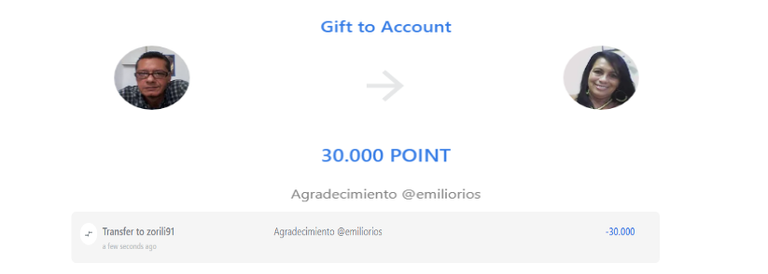


It's not a burden It's family! -Facing Necessary Help-
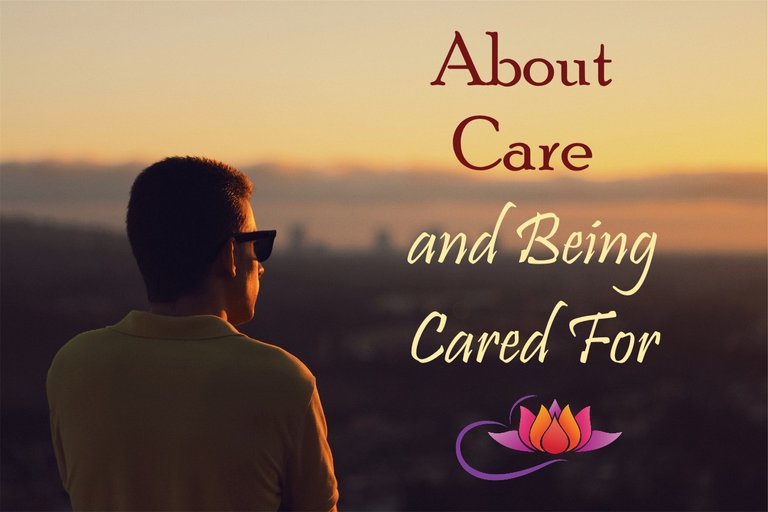

In our Latin American countries, it may not be difficult to feel like a burden, the family is a burden and has a culture of children who in the end support their parents.
This is a situation that some of the people who have contributed to the Longevity Revolution III Initiative have exposed; and it is worth analyzing, because it defines who feels like a burden and also defines the caregiver, in how we behave towards them.
We refer to our parents, grandparents, friends, who for circumstances are left alone, in the care and dependence of others, as happens with migration, age or illness.
What can we do to lighten the emotional burden of those who feel overwhelmed by the fact that they are the responsibility of others?


A concern of the users who created @holos-lotus
I am extremely grateful for the number of incredible posts generated by our community initiatives.
Regarding the Longevity Revolution initiative, I am impressed with the amount of information, experiences and life lessons that users leave us regarding how to treat others, because, at the end of the day, that is the purpose of this initiative, to check how I am behaving with others.
And regarding this, @zorili91 in her excellent, human and confidential publication, left me a pending doubt that obliges me to develop it before making the summary of this month's Seventh Day initiative.
She raises the situation when children decide, or have the need, to take care of their parents, usually out of gratitude, or because they understand that there comes a time when we need to be cared for by others.

Accepting help
In Latin America, for different reasons, we often find ourselves under the responsibility of others.
Migration, as well as the same age, make us have to be part of the responsibility of our relatives, sometimes friends and even neighbors, and this can make us feel disconnected and overwhelmed.
We must learn that sooner or later we are going to give or receive help.
That the family has the emotional weight of taking responsibility for their own in situations of vulnerability and that they are capable of supporting with an attitude of collaboration, but also with empathy and understanding.
Suddenly, some situation did not turn out as you expected and you ended up alone in the country, but you have family members who, although far away, can take responsibility for you.
This implies that social support networks are as important as professions, which are part of existence, so you must begin to transform your beliefs.
And there are always other ways to contribute; and a burden is not necessarily linked in its concept to the economic area, because there are many ways to make yourself felt, to collaborate, to be a participant in the welfare of a family or people who take responsibility for us.
Therefore, we must learn to give ourselves the value we have, even if we are cared for by others.

Plus, the contribution of the caregiver...
On the other hand, family members who must take responsibility for others in situations of vulnerability, must be aware of the emotions generated by knowing that they are a burden, which are like a syndrome that they may feel.
These are a series of emotional reactions in those who feel they are a burden to others.
And this with the purpose of being preventive in the face of stress, depression, anguish; to provide support, and a new perspective of what it means to be helped.
We have the duty and the capacity to detect these situations, to talk as a family so that they receive the attention they should receive.
The family member we are supporting must maintain optimism, take care of their self-esteem, receive from us coherent and genuine emotions that can help promote self-care behaviors so that they always remain active.
Knowing that a family member feels valued and cared for should be one of the reasons why we are communicating with them and letting them know that it is a law of life.
That many times we receive as much as we give.
The physical and psychological deterioration of a family member who feels powerless and unproductive can be avoided when we detect attitudes of guilt and uncertainty.
And for that, we indicate the reasons that exist to be cared for and supported, as well as, to transmit the honesty of our emotions and to underline that it is a human action, an important part of what it is to live in community.

Gratitude and human reason
May we always be moved by gratitude towards our surroundings.
Just because a human being has not given us directly, does not mean that he or she is not part of the humanity that surrounds us.
So it is our responsibility to reach out, because we must be grateful to life, for having given us the option to enjoy existence.
Gratitude is the most important thing that a human being must have to reach out his hand, and to know that, at any moment, he will need the hands of others.
Psychological help can be useful both for the one who receives the help and for the one who gives it, because it is necessary to understand the true dimension of service, which is an inherent part of the human condition.
I am grateful, I repeat, to those who are creating sobering publications from The Longevity Revolution III, generating increasingly complex topics for reflection.
And I am still thinking about how to summarize so many valuable words and lessons.
For now, I send, with much affection, an acknowledgement in #Ecency points to friend Zorili @zoriliili91.



Emilio Ríos – Venezuela
@emiliorios


- Barras separadoras y logo de English, creadas y editadas en Paint.
Separator bars and English logo, created and edited in Paint.
Cintillo personalizado de @emiliorios con el logo de #Hive, realizado por la excelente creadora @mosa71
@emiliorios banner with the #Hive logo, made by the excellent content creator @mosa71*
Logo de Twitter tomado de la plataforma de la red social.
Twitter logo taken from the social network platform.Imagen de agradecimiento, tomando el logo de nuestra comunidad y editada en Paint, de:
Thank you image, taking our community logo and edited in Paint, by:
Pixabay-Yogendras31
Logo de la comunidad utilizado en las imágenes, de:
Community logo used in the images, from:
Pixabay-2405360Si lo deseas, puedes seguirnos en:
If you wish, you can follow us at:



